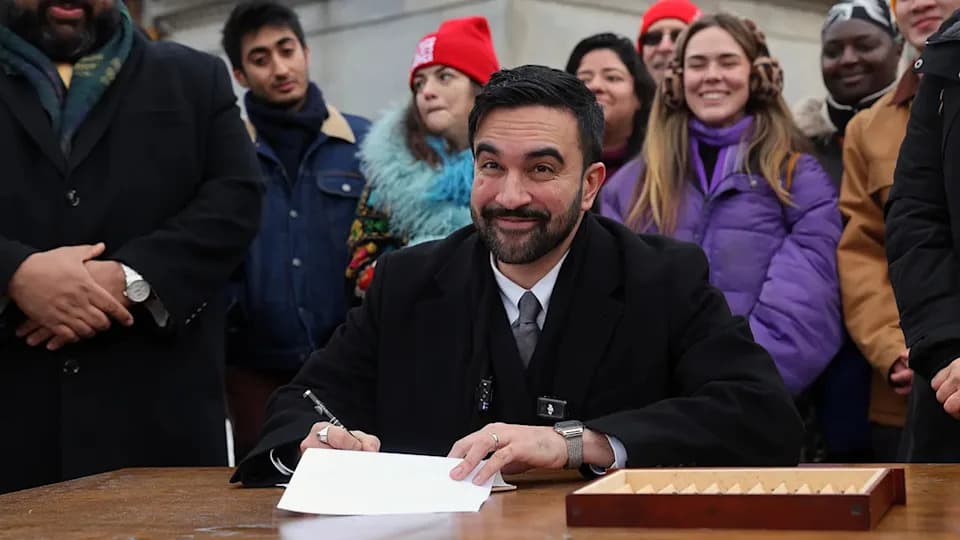Mahmood Mamdani, the 79-year-old academic and father of NYC mayor-elect Zohran Mamdani, said he and his wife Mira Nair will stay "at arm's length" from the incoming administration while remaining available to offer perspective. The elder Mamdani, a Columbia professor and director of the Makerere Institute of Social Research, is promoting a new book that re-examines Idi Amin's rule. A resurfaced 2022 clip and passages from his 2004 book have prompted renewed public debate about some of his past remarks. He cautioned that power can be corrosive for intellectuals.
Mahmood Mamdani Says He Will Keep an 'Arm's Length' from Son Zohran Mamdani’s Incoming NYC Administration

Mahmood Mamdani, the 79-year-old scholar and father of New York City mayor-elect Zohran Mamdani, said he and his wife, filmmaker Mira Nair, plan to maintain a respectful distance from their son's incoming administration while remaining available to offer perspective and advice.
Zohran Mamdani, a Democratic socialist and former New York State assemblymember representing Astoria, Queens, won the mayoral race and is scheduled to be sworn in on Jan. 1.
When asked how he will relate to his son's administration, Mahmood Mamdani described a cautious role:
"Always be available for discussion, for sharing our point of view, but not mistaking ourselves for being him. Initially, at least, both Mira and I will stay at arm's length, but always be available."
Mahmood Mamdani teaches government and anthropology at Columbia University and directs the Makerere Institute of Social Research in Uganda. He is promoting a new book, Slow Poison: Idi Amin, Yoweri Museveni, and the Making of the Ugandan State, which re-examines the era of Idi Amin's rule and its legacy.
His public profile has drawn renewed attention amid a resurfaced 2022 panel clip—viewed by millions—that sparked debate for remarks about the influence of American settler-colonial practices. Commentators also revisited passages from his 2004 book, Good Muslim, Bad Muslim: America, the Cold War, and the Roots of Terror, which argued that suicide bombing should be understood within the context of modern political violence rather than solely demonized.
Born in India and raised in Uganda, Mahmood Mamdani was expelled in 1972 under a decree targeting citizens of South Asian descent during Idi Amin's rule. He later pursued an academic career in the United States and has taught at multiple universities. He and Mira Nair married in 1991 after meeting during the filming of Mississippi Masala; their son Zohran, born that year, became a community organizer and later an assemblymember before winning the mayoralty.
Reflecting on the relationship between intellect and authority, Mamdani warned that power can be corrosive:
"I don’t believe one should just stay away from power, but I don’t think we should embrace it. Power is a fatal thing for intellectuals. It corrupts intellectuals. I’ve seen many, many, many a friend get corrupted in the process."
The interview highlights both the family’s prominence during the campaign and the scrutiny that tends to follow public figures and their close relatives.
Help us improve.




























